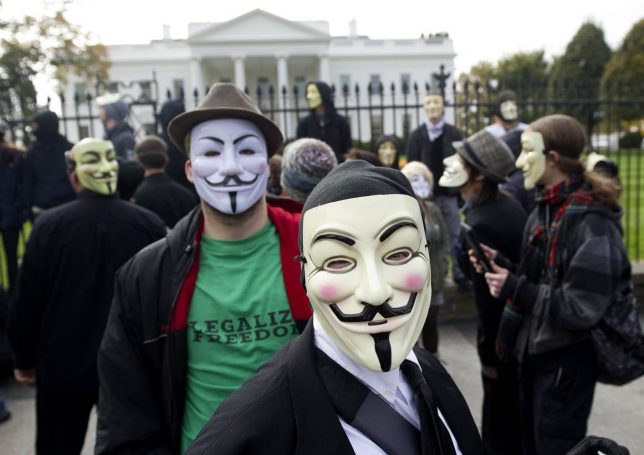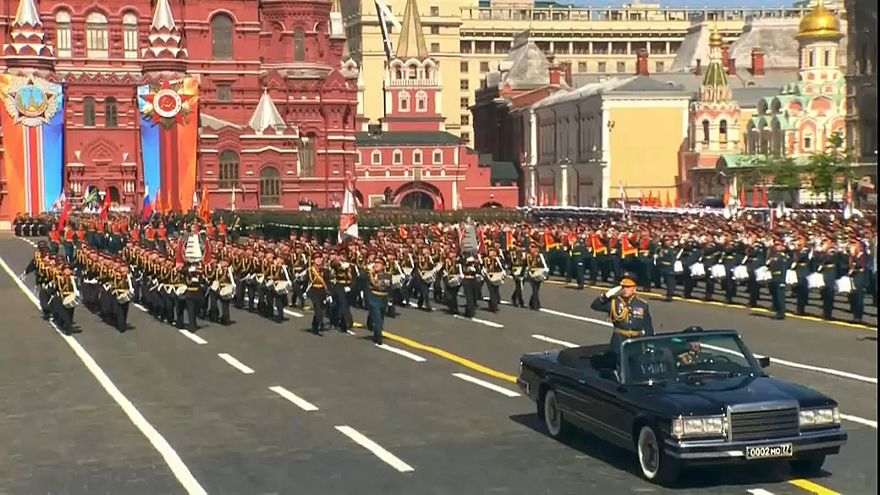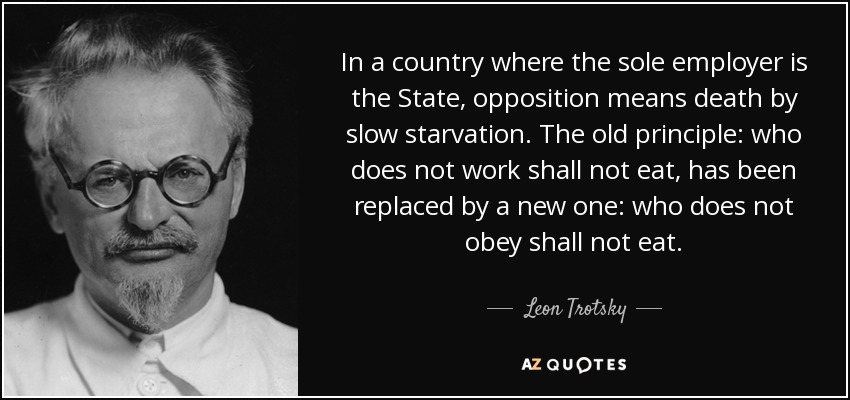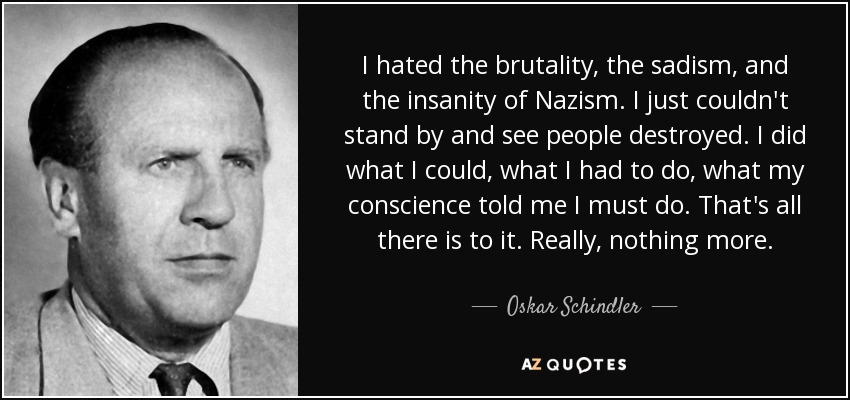
This is the fourth in a series of posts based upon Jordan Peterson's book Maps of Meaning, published in 1999 after 17 years of research and writing. It is rich in description and insight with many references and quotations from original sources. Reading it I began to copy passages that struck me as especially lucid and pertinent. Those paragraphs of his text are provided below in italics as excerpts selected to explain five themes emerging in my reflections while pondering his book. Cosmic Dichotomy: Peterson's Pearls (1) provides an overview explaining why this is important to me and perhaps to others.
[Note: I use the word "cosmic" since each individual's world is at risk, and as we see in the agitation over climate change, entire social groups can also fear for their collective world.]
Jordan Peterson on Cosmic Evil (Excerpts from Maps of Meaning: The Architecture of Belief Title is link to pdf)
No discussion of the architecture of belief can possibly be considered complete, in the absence of reference to evil. Evil is no longer a popular word, so to speak—the term is generally considered old-fashioned, not applicable in a society that has theoretically dispensed with its religious preoccupations. Acts once defined as evil are now merely considered the consequence of unjust familial, social or economic structures (although this view is not as widespread as it once was). Alternatively, the commission of incomprehensible acts of cruelty and destruction are viewed as symptomatic of some physiological weakness or disease. Seldom are acts of evil considered voluntary or purposeful—committed by someone possessed by an aesthetic that makes art of terror and pain.
Evil, like good, is not something static: it does not merely mean breaking the rules, for example, and is not simply aggression, anger, force, pain, disappointment, anxiety or horror. Life is of course endlessly complicated by the fact that what is bad in one circumstance is positively necessary in the next.
Evil is rejection of and sworn opposition to the process of creative exploration. Evil is proud repudiation of the unknown, and willful failure to understand, transcend and transform the social world. Evil is, in addition—and in consequence—hatred of the virtuous and courageous, precisely on account of their virtue and courage. Evil is the desire to disseminate darkness, for the love of darkness, where there could be light. The spirit of evil underlies all actions that speed along the decrepitude of the world, that foster God's desire to inundate and destroy everything that exists.
Many kings are tyrants, or moral decadents, because they are people—and many people are tyrants, or moral decadents. We cannot say "never again" as a consequence of the memory of the Holocaust, because we do not understand the Holocaust, and it is impossible to remember what has not been understood. We do not understand the Holocaust because we do not comprehend ourselves. Human beings, very much like ourselves, produced the moral catastrophes of the Second World War (and of Stalin's Soviet Union, and of Pol Pot's Cambodia…). "Never forget" means "know thyself": recognize and understand that evil twin, that mortal enemy, who is part and parcel of every individual.
The heroic tendency—the archetypal savior—is an eternal spirit, which is to say, a central and permanent aspect of human being. The same is true, precisely, of the "adversarial" tendency: the capacity for endless denial, and the desire to make everything suffer for the outrage of its existence, is an ineradicable intrapsychic element of the individual. The great dramatists and religious thinkers of the world have been able to grasp this fact, at least implicitly, and to transmit it in story and image; modern analytic thinkers and existential theorists have attempted to abstract these ideas upward into "higher consciousness," and to present them in logical and purely semantic form. Sufficient material has been gathered to present a compelling portrait of evil.

The image of the devil is the form that the idea of evil has taken, for better or worse, at least in the West. We have not yet developed an explicit model of evil that would allow us to forget, transcend or otherwise dispense with this mythological representation. We rationalize our lack of such understanding by presuming that the very notion of evil is archaic. This is a truly ridiculous presumption, in this century of indescribable horror. In our ignorance and complacency, we deride ancient stories about the nature of evil, equating them half-consciously with childish things best put away. This is an exceedingly arrogant position. There is no evidence whatsoever that we understand the nature of evil any better than our forebears, despite our psychology, even though our expanded technological power has made us much more dangerous when we are possessed.
It is reason's belief in its own omniscience—manifest in procedure and image, if not in word—that "unconsciously" underlies totalitarianism in its many destructive guises. . . It is not that easy to understand why the act of presuming omniscience is reasonably construed as precisely opposite to the act of creative exploration (as the adversary is opposite to the hero). What "knowing everything" means, however—at least in practice—is that the unknown no longer exists, and that further exploration has therefore been rendered superfluous (even treacherous).

Rally organized for Nicolae Ceausescu in 1978. Photo source: fototeca.iiccr.ro
The arrogance of the totalitarian stance is ineradicably opposed to the "humility" of creative exploration. [Humility—it is only constant admission of error and capacity for error (admission of "sinful and ignorant nature") that allows for recognition of the unknown, and then for update of knowledge and adaptation in behavior. Such humility is, somewhat paradoxically, courageous—as admission of error and possibility for error constitutes the necessary precondition for confrontation with the unknown. This makes genuine cowardice the "underground" motivation for the totalitarian presumption: the true authoritarian wants everything unpredictable to vanish. The authoritarian protects himself from knowledge of this cowardice by a show of patriotic advocacy, often at apparent cost to himself.]
It has taken mankind thousands of years of work to develop dawning awareness of the nature of evil—to produce a detailed dramatic representation of the process that makes up the core of human maladaptation and voluntarily produced misery. It seems premature to throw away the fruit of that labor or to presume that it is something other than what it appears before we understand what it signifies.

The fact of mortal vulnerability—that defining characteristic of the individual, and the "reason" for his emergent disgust with life—may be rendered even more "unjust" and "intolerable" by the specific manifestations of such vulnerability. Some are poorer than others, some weaker, some unsightlier—all less able, in some regard (and some apparently less able in all regards). Recognition of the seemingly arbitrary distribution of skill and advantage adds additional rationally "justifiable" grounds for the development of a philosophy based on resentment and antipathy—sometimes, "on behalf" of an entire class, other times, sheerly for the purposes of a specific individual. Under such circumstances, the desire for revenge on life itself may become paramount above all else, particularly for the "unfairly oppressed."

Riots in Watts, Los Angeles 1965.
Evil is voluntary rejection of the process that makes life tolerable, justified by observation of life's terrible difficulty. This rejection is presumptious, premature, because it is based on acceptance of a provisional judgment as final: "everything is insufficient, and is therefore without worth, and nothing whatsoever can be done to rectify the situation." Judgment of this sort precludes all hope of cure.
The development of the adversary therefore follows a predictable path, from pride ("Pride and worse Ambition threw me down"), through envy, to revenge—to the ultimate construction of a character possessed by infinite hatred and envy.
Tolstoy's nihilism—disgust with the individual and human society, combined with the desire for the eradication of existence—is one logical "evil" consequence of heightened self-consciousness. It is not, however, the only consequence, and may not even be the most subtle. Far more efficient—far more hidden from the perpetrator himself, and from his closest observers—is heightened identification with tradition and custom. This is envelopment in the guise of patriotism, to facilitate the turning of state power toward destruction.

Group membership, social being, represents a necessary advance over childish dependence, but the spirit of the group requires its pound of flesh. Absolute identification with the group means rejection of individual difference: means rejection of "deviation," even "weakness," from the group viewpoint; means repression of individuality, sacrifice of the mythic fool; means abandonment of the simple and insufficient "younger brother." The group, of course, merely feels that it is doing its duty by insisting upon such sacrifice; it believes, with sufficient justification, that it is merely protecting its structure.
Denial of unique individuality turns the wise traditions of the past into the blind ruts of the present. Application of the letter of the law when the spirit of the law is necessary makes a mockery of culture. Following in the footsteps of others seems safe, and requires no thought—but it is useless to follow a well-trodden trail when the terrain itself has changed. The individual who fails to modify his habits and presumptions as a consequence of change is deluding himself—is denying the world—is trying to replace reality itself with his own feeble wish. By pretending things are other than they are, he undermines his own stability, destabilizes his future, and transforms the past from shelter to prison.

The Mausoleum of Dead Presidents in Pyongyang.
The individual embodiment of collective past wisdom is turned into the personification of inflexible stupidity by means of the lie. The lie is straightforward, voluntary rejection of what is currently known to be true. Nobody knows what is finally true, by definition, but honest people make the best possible use of their experience. The moral theories of the truthful, however incomplete from some hypothetical transcendent perspective, account for what they have seen and for who they are, insofar as that has been determined in the course of diligent effort.
This is to say, merely, that the truth of children and adults differs, because their experience—their reality—differs. The truthful child does not think like an adult: he thinks like a child, with his eyes open. The adult, however, who still uses the morality of the child—despite his adult capacities—he is lying, and he knows it.

The lie is willful adherence to a previously functional schema of action and interpretation—a moral paradigm—despite new experience that cannot be comprehended in terms of that schema; despite new desire, which cannot find fulfillment within that framework. The lie is willful rejection of information apprehended as anomalous on terms defined and valued by the individual doing the rejecting. That is to say: the liar chooses his own game, sets his own rules and then cheats. This cheating is failure to grow, to mature; it is rejection of the process of consciousness itself.
The unknown has to be "mined" for precise significance, before it can be said to have been experienced, let alone comprehended; has to be transformed, laboriously, from pure affect into revision of presumption and action (into "psyche" or "personality"). "Not doing" is therefore the simplest and most common lie: the individual can just "not act," "not investigate," and the pitfalls of error will remain unmanifest, at least temporarily. This rejection of the process of creative exploration means lack of effortful update of procedural and declarative memory, adaptation to the present as if it still were the past, refusal to think.
The identity of the individual with his culture protects him from the terrible unknown, and allows him to function as an acceptable member of society. This slavish function strengthens the group. But the group states that certain ways of thinking and acting are all that are acceptable, and these particular ways do not exhaust the unknown and necessary capabilities of the human being. The rigid, grinning social mask is the individual's pretence that he is "the same person" as everyone else (that is, the same dead person)— that he is not a natural disaster, not a stranger, not strange—that he is not deviant, weak, cowardly, inferior and vengeful. The true individual, however—the honest fool—stands outside the protective enclave of acceptance, unredeemed—the personification of weakness, inferiority, vengefulness, cowardice, difference. He cannot make the cut, and because he cannot make the cut, he is the target of the tyranny of the group (and of his own judgment, insofar as he is that group). But man as a fool, weak, ignorant and vulnerable, is what the group is not: a true individual, truly existing, truly experiencing, truly suffering (if it could only be admitted).

The adversarial position, deceit, is predicated on the belief that the knowledge of the present comprises all necessary knowledge—is predicated on the belief that the unknown has finally been conquered. This belief is equivalent to denial of vulnerability, equivalent to the adoption of omniscience—"what I do is all there is to do, what I know is all there is to know." Inextricably associated with the adoption of such a stance is denial, implicit or explicit, of the existence, the possibility, and the necessity of the heroic—as everything worthwhile has already been done, as all problems have been solved, as paradise has already been spread before us.

Denial of the heroic promotes fascism, absolute identification with the cultural canon. Everything that is known, is known within a particular historically determined framework, predicated upon mythologically expressed assumptions. Denial or avoidance of the unknown therefore concomitantly necessitates deification of a particular previously established viewpoint.
Denial of the heroic promotes decadence, equally—absolute rejection of the order of tradition; absolute rejection of order itself. This pattern of apprehension and behavior seems far removed from that of the fascist, but the decadent is just as arrogant as his evidently more rigid peer. He has merely identified himself absolutely with no thing, rather than with one thing. He is rigidly convinced of the belief that nothing matters— convinced that nothing is of value, despite the opinions of (clearly deluded, weak and despicable) others; convinced that nothing is worth the effort. The decadent functions in this manner like an anti-Midas—everything he touches turns to ashes.
The normal individual solves his problem of adaptation to the unknown by joining a group. A group, by definition, is composed of those who have adopted a central structure of value, and who therefore behave, in the presence of other group members, identically—and if not identically, at least predictably. The fascist adapts to the group with a vengeance. He builds stronger and stronger walls around himself and those who are "like him," in an ever more futile attempt to keep the threatening unknown at bay. He does this because his worldview is incomplete.
The decadent, by contrast, sees nothing but the tyranny of the state. Since the adversarial aspect of the individual remains conveniently hidden from his view, he cannot perceive that his "rebellion" is nothing but avoidance of discipline. He views chaos as a beneficial home, seeing the source of human evil in social regulation. . . The decadent looks to subvert the process of maturation—looks for a "way out" of group affiliation. Group membership requires adoption of at least adolescent responsibility, and this burden may seem too much to bear, as a consequence of prolonged immaturity of outlook.
The fascist and the decadent regard each other as opposites, as mortal enemies. They are in actuality two sides of the same bent coin.
This "theory of the genesis of social psychopathology"—this theory of a direct relationship obtaining between personal choice and fascistic or decadent personality and social movement—finds its precise echo in Taoist philosophy, and can be more thoroughly comprehended through application of that perspective. . . Much of ancient Chinese philosophy (cosmology, medicine, political theory, religious thinking) is predicated on the idea that pathology is caused by a relative excess of one primordial "substance" or the other. The goal of the Chinese sage—physician, spiritual leader or social administrator—is to establish or re-establish harmony between the fundamental "feminine" and "masculine" principles, and to diagnose and cure the faulty action or irresponsible inactions that led to their original discord. The schematic representation of Yin and Yang, portrayed below, utilizes the image of a circle to represent totality; the paisleys that make up that circle are opposed but balanced.

The fascist, who will not face the reality and necessity of the unknown, hides his vulnerable face in a "pathological excess of order." The decadent, who refuses to see that existence is not possible without order, hides his immaturity from himself and others in a "pathological excess of chaos." The fascist is willing to sacrifice painful freedom for order, and to pretend that his unredeemed misery is meaningless, so that he does not have to do anything for himself. The decadent believes that freedom can be attained without discipline and responsibility, because he is ignorant of the terrible nature of "the undifferentiated ground of reality" and is unwilling to bear the burden of order. When he starts to suffer, as he certainly will, he will not allow the reality of his suffering to prove to him that some things are real, because acceptance of that proof would force him to believe and to act (would force him as well toward painful realization of the counterproductive and wasteful stupidity of his previous position).
The decadent says, "there is no such thing as to know"—and never attempts to accomplish anything. Like his authoritarian counterpart, he makes himself "immune from error," since mistakes are always made with regard to some valued, fixed and desired end. The decadent says, "look, here is something new, something inexplicable; that is evidence, is it not, that everything that I have been told is wrong. History is unreliable; rules are arbitrary; accomplishment is illusory. Why do anything, under such circumstances?" But he is living on borrowed time—feeding, like a parasite, on the uncomprehended body of the past.
The invention, establishment and perfection of the concentration camp, the efficient genocidal machine, might be regarded as the crowning achievement of human technological and cultural endeavor, motivated by resentment and loathing for life. Invented by the English, rendered efficient by the Germans, applied on a massive scale by the Soviets and the Chinese, revivified by the Balkan conflict—perfection of the factory whose sole product is death has required truly multinational enterprise. Such enterprise constitutes, perhaps, the prime accomplishment of the cooperative bureaucratization of hatred, cowardice and deceit. Tens of millions of innocent people have been dehumanized, enslaved and sacrificed in these efficient disassembly lines, in the course of the last century, to help their oppressors maintain pathological stability and consistency of moral presumption, enforced through terror, motivated by adherence to the lie.

The Rwandan massacres, the killing fields in Cambodia, the tens of millions dead (by Solzhenitsyn's estimate) as a consequence of internal repression in the Soviet Union, the untold legions butchered during China's Cultural Revolution [the Great Leap Forward (!), another black joke, accompanied upon occasion, in the particular, by devouring of the victim], the planned humiliation and rape of hundreds of Muslim women in Yugoslavia, the holocaust of the Nazis, the carnage perpetrated by the Japanese in mainland China— such events are not attributable to human kinship with the animal, the innocent animal, or even by the desire to protect territory, interpersonal and intrapsychic, but by a deep-rooted spiritual sickness, endemic to mankind, the consequence of unbearable self-consciousness, apprehension of destiny in suffering and limitation, and pathological refusal to face the consequences thereof.
The fact, regardless of content, is not evil; it is mere (terrible) actuality. It is the attitude to the fact that has a moral or immoral nature. There are no evil facts—although there are facts about evil; it is denial of the unacceptable fact that constitutes evil—at least insofar as human control extends. The suppression of unbearable fact transforms the conservative tendency to preserve into the authoritarian tendency to crush; transforms the liberal wish to transform into the decadent desire to subvert. Confusing evil with the unbearable fact, rather than with the tendency to deny the fact, is like equating the good with the static product of heroism, rather than with the dynamic act of heroism itself. Confusion of evil with the fact—the act of blaming the messenger—merely provides rationale for the act of denial, justification for savage repression, and mask of morality for decadence and authoritarianism.

The highest value toward which effort is devoted determines what will become elevated, and what subjugated, in the course of individual and social existence. If security or power is valued above all else, then all will become subject to the philosophy of expedience. In the long term, adoption of such a policy leads to development of rigid, weak personality (or social environment) or intrapsychic dissociation and social chaos.
The personality of this adversary comes in two forms, so to speak—although these two forms are inseparably linked. The fascist sacrifices his soul, which would enable him to confront change on his own, to the group, which promises to protect him from everything unknown. The decadent, by contrast, refuses to join the social world, and clings rigidly to his own ideas—merely because he is too undisciplined to serve as an apprentice. The fascist wants to crush everything different, and then everything; the decadent immolates himself, and builds the fascist from his ashes. The bloody excesses of the twentieth century, manifest most evidently in the culture of the concentration camp, stand as testimony to the desires of the adversary and as monument to his power.

Trotsky refers to the old principle which St. Paul states in 2 Thessalonians chapter 3:10 "We gave you this rule: if a man will not work, he shall not eat." And before that Deuteronomy 25:4: "Do not muzzle an ox while it is treading out the grain."
The pitfalls of fascism and decadence may be avoided through identification with the hero, the true individual. The hero organizes the demands of social being and the responsibilities of his own soul into a coherent, hierarchically arranged unit. He stands on the border between order and chaos, and serves the group as creator and agent of renewal. The hero's voluntary contact with the unknown transforms it into something benevolent—into the eternal source, in fact, of strength and ability. Development of such strength—attendant upon faith in the conditions of experience— enables him to stand outside the group, when necessary, and to use it as a tool, rather than as armor. The hero rejects identification with the group as the ideal of life, preferring to follow the dictates of his conscience and his heart. His identification with meaning—and his refusal to sacrifice meaning for security—renders existence acceptable, despite its tragedy.

from Climate Change Skeptic Blogs via hj on Inoreader https://ift.tt/2GLsGdY


No comments:
Post a Comment